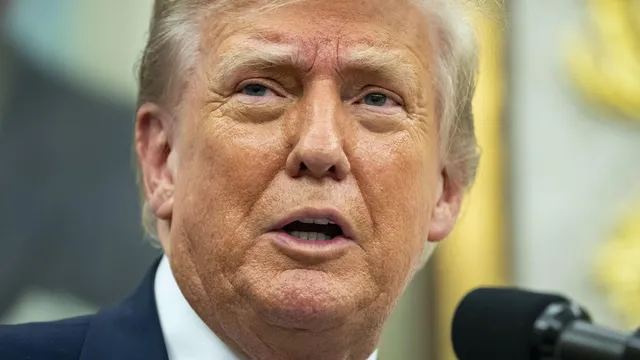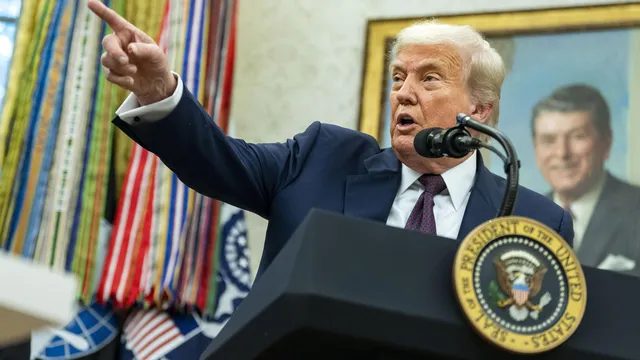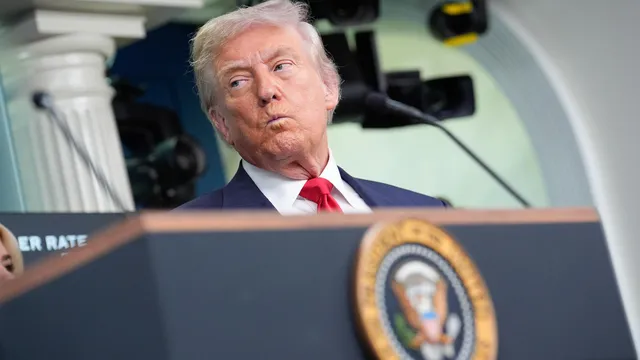President Donald Trump announced that he has signed an executive order to extend the trade truce with China for another 90 days, posting the message on his social platform Truth Social and specifying that “all other elements of the Agreement will remain the same,” The Independent reported. The previous deadline was midnight, and if the truce had ended, the US would have been able to raise tariffs on Chinese imports from the current high level of 30%, while Beijing would respond with increased retaliatory duties on American exports to China.
This extension gives both sides time to resolve some of their disagreements and potentially paves the way for a meeting between Trump and Chinese President Xi Jinping later this year. The decision was welcomed warmly by American companies working with China. Sean Stein, President of the US-China Business Council, said the extension is “critical” because it provides time for negotiations on a trade agreement that American firms hope will improve their access to the Chinese market and provide certainty for medium- and long-term planning. “Reaching an agreement on fentanyl-related issues that would lead to reductions in US tariffs and removal of Chinese retaliatory measures is urgently needed to resume exports of American agricultural and energy products,” he added.
Reaching an agreement with China remains an unfinished issue for Trump, who has already shaken the global trade system by imposing double-digit tariffs on nearly all countries. The European Union, Japan, and other partners have concluded unbalanced trade deals, accepting formerly unthinkable high US tariffs (for example, 15% on imports from Japan and the EU) to avoid worse outcomes. Trump’s trade policy transformed the US from one of the most open economies in the world into a protectionist fortress: the average US tariff rose from about 2.5% at the start of the year to 18.6% — the highest level since 1933, according to Budget Lab at Yale University.
Beijing has tested the limits of US policy by using its own weapon — restricting or delaying access to rare earth elements and their magnets, which are used in everything from electric vehicles to jet engines. In June, the two countries reached an agreement to ease tensions: the US pledged to withdraw export restrictions on computer chip technologies and ethane (a substance used in petrochemical production), while China agreed to facilitate American firms’ access to rare earth elements.
“The US realized it does not have the upper hand,” commented Claire Reid, senior advisor at Arnold & Porter and former US Assistant Trade Representative for China-related issues.
In May, the two countries avoided an economic catastrophe by reducing the massive tariffs they had mutually imposed — some reaching 145% against China and 125% against the US. These triple-digit tariffs threatened to halt trade between the two countries and triggered massive sell-offs in financial markets. A meeting in Geneva agreed on a rollback: US tariffs were lowered to a still-high level of 30%, and Chinese tariffs to 10%. Since then, the two sides have continued talks.
“By overestimating the ability of steep tariffs to extract economic concessions from China, the administration not only revealed the limits of its unilateral power but also gave Beijing reason to believe it can maintain the upper hand in future negotiations, threatening to restrict exports of rare earth elements,” said Ali Wyne of the International Crisis Group. “The administration’s desire for a trade turnaround stems from the self-inflicted consequences of its previous overconfidence.”
It remains unclear whether Washington and Beijing will reach a comprehensive agreement on the most difficult issues — weak Chinese intellectual property protections, state subsidies, and industrial policies that, according to Americans, give Chinese firms an unfair advantage and contribute to the US’s huge trade deficit with China of $262 billion last year.
Reid does not expect much more than limited agreements — for example, China increasing purchases of American soybeans, committing to limit the flow of chemicals used to produce fentanyl, and allowing continued supplies of rare earth magnets. More complex issues will likely remain unresolved, and “the trade war will continue to smoulder for years to come,” warns Jeff Moon, a former American diplomat and trade representative who now heads the consultancy China Moon Strategies. |BGNES

 Breaking news
Breaking news
 Europe
Europe
 Bulgaria
Bulgaria







